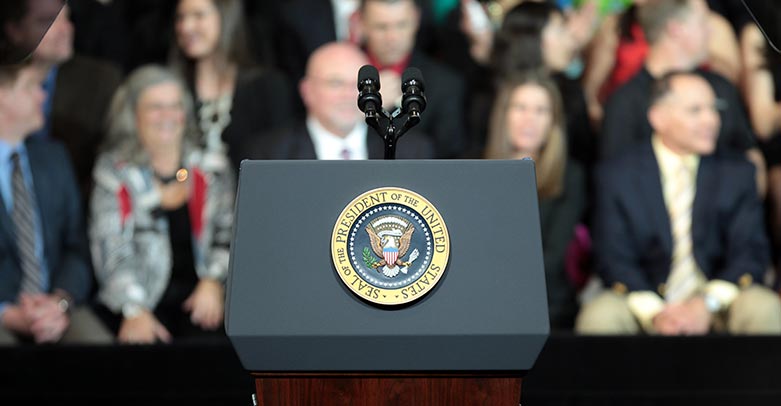
“If you stand for nothing, Burr, what’ll you fall for?”
Alexander Hamilton asks his rival Aaron Burr that question throughout the Broadway smash “Hamilton.” It’s a sentiment that now seems to be shared by a growing number of consumers who are using their buying power to reward companies for taking a political stand – or even the appearance of one.
Take Nordstrom, for example, who dropped Ivanka Trump’s products, a move the retailer says was tied to sales. But all it took was one critical tweet from the POTUS for millions to turn shopping into a political protest, spending big and sending Nordstrom’s stock soaring.
Until recently, it was relatively rare for corporations or their leadership to publicly come out for, or against, a political figure and/or their policies. This was especially true with hot button issues.
Sure, companies have always taken up causes. And, as a marketing communications professional with a political background, I have long pushed my clients to invest in comprehensive cause marketing campaigns.
The issues large corporations have championed have traditionally been deemed “safe.” They have gravitated toward campaigns in support of cancer research, literacy or reduction of homelessness; anything that could be polarizing was usually not considered.
That was true until the 2016 presidential election when (to quote “Hamilton” again), the world turned upside down for many in the communications industry. In the blink of a press conference, years of PR best practices have been called into question.
Times have certainly changed, and now playing it safe on political issues may actually be risky for businesses. Case in point: Lyft soared to the top of the App Store after the company pledged a $1 million donation to the ACLU in response to the Trump administration’s travel ban. Simultaneously, the #deleteUber campaign was launched by consumers critical of Uber for not showing solidarity with New York Taxi Workers Alliance’s temporary halt on rides heading to John F. Kennedy Airport.
Perhaps this shouldn’t be all that shocking to us. Emotions are running high in America. And, as the champion of Breakout Brands, at rbb Communications we’ve seen firsthand how emotions are driving purchases like never before.
In fact, rbb’s own research has found that customers will pay more for a brand where there’s an emotional connection – a connection that is formed by how a company both communicates and displays its core values.
However, it may no longer be enough to simply have a mission and vision that consumers feel good about. A recent Fast Company experiment found that customers thought it hypocritical for a company that claims to be “guided by core values” to then withhold its position on a political issue. Consumers felt it gave the appearance that the company was “hiding” something from them.
But, similar to rbb’s Breakout brand research, Fast Company also found that when companies displayed their values in a very real way – whether it be Target enabling transgender customers to use the bathroom that matched their identity or Hobby Lobby fighting the Obamacare birth control mandate – the connection with consumers whose own values align deepens significantly.
This doesn’t necessarily mean that a company that takes a stand at odds with a customer’s ideology will lose that customer. It seems even in this highly divisive time in our nation’s history, a company and its leaders can support political leaders and remain unscathed.
Elon Musk and Tesla are living proof. Despite initial criticism, Musk decided to remain on President Trump’s CEO Advisory Council, saying he felt his decision was the best way “to provide feedback on issues that I think are important for our country and the world.”
This honest and direct explanation quieted naysayers. When a company or its leaders’ views are communicated clearly – and with sincerity – most of the buying public will reward them for being forthright. Because honest, genuine and authentic communications are always the best policy, and I hope that’s a PR best practice that is never rewritten.
Photo: Creative Commons “Presidential Podium” by Gage Skidmore, used under CC BY / Cropped from original